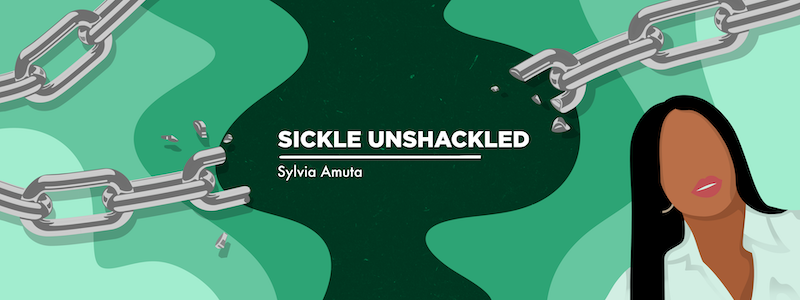How I navigated a tough question as a sickle cell caregiver
The challenging but rewarding talk that followed a death from the disease

The other day, my cousin Ada asked me a question that stopped me in my tracks. I’d known that she had some idea, maybe something like an overview, about her sickle cell illness. When she started living with me, she was a smart-mouthed 8-year-old, and now she’s approaching her 10th birthday. During those two years, I’ve had to clear up many misconceptions she’s had about her illness. However, I wasn’t prepared for the question she asked me this time.
I was just off the phone from talking with a friend and colleague. She’d told me about a mutual friend of ours whose child had just died from an acute case of sepsis. I’d known this child had a history of sickle cell symptoms, so I was heartbroken and trying my best to digest the information because I’d just seen them the week before. That’s when Ada asked the question that shook me to my core.
“Am I going to die, too?” Ada inquired.
I had no idea how long she’d been listening to my conversation or how much she’d heard. I was taken aback and had to gather my thoughts before responding.
“Why would you say that?” I asked, trying to keep my voice steady.
“Because I know who you’re talking about,” she replied. “She was the girl with sickle cell, and I heard you say she has died. Does that mean I will die too because I also have sickle cell?”
Pointing a difficult moment in new directions
In that moment, the weight of my responsibility as Ada’s caregiver became almost unbearable. How do you explain the uncertainties of life to a young child with a chronic illness? I took a deep breath and sat her down. I chose to share what I knew about this child, but not to scare Ada; I hoped instead to emphasize the importance of proper care and a healthy lifestyle.
I told her that while sickle cell disease can present challenges, it doesn’t have to define her future. I explained that with the right care, regular checkups, and a focus on staying healthy, she could live a long, fulfilling life.
As I spoke, I saw the fear in her eyes fade, replaced by a glimmer of hope. I shared stories of people with sickle cell who’d achieved remarkable things and were living “normal” lives, proving that her dreams could be pursued and her goals could be reached.
Our conversation wasn’t just about answers; it was about comfort, reassurance, and a promise. I vowed that no matter what the future held, I’d be there to support her. We talked about her dreams, her hobbies, and the things that bring her joy. I wanted her to understand that life was about more than sickness; it was about living, thriving, and finding happiness in each moment.
Ada’s question had been a reminder of the harsh realities that those with sickle cell disease face. But it’s also become an opportunity for us to bond and connect on a deeper level. As caregivers, we may not have all the answers, but we have the power to provide love, support, and hope that can carry our loved ones through the challenges of their journey.
Note: Sickle Cell Disease News is strictly a news and information website about the disease. It does not provide medical advice, diagnosis, or treatment. This content is not intended to be a substitute for professional medical advice, diagnosis, or treatment. Always seek the advice of your physician or other qualified health provider with any questions you may have regarding a medical condition. Never disregard professional medical advice or delay in seeking it because of something you have read on this website. The opinions expressed in this column are not those of Sickle Cell Disease News or its parent company, BioNews, and are intended to spark discussion about issues pertaining to sickle cell disease.








Comments